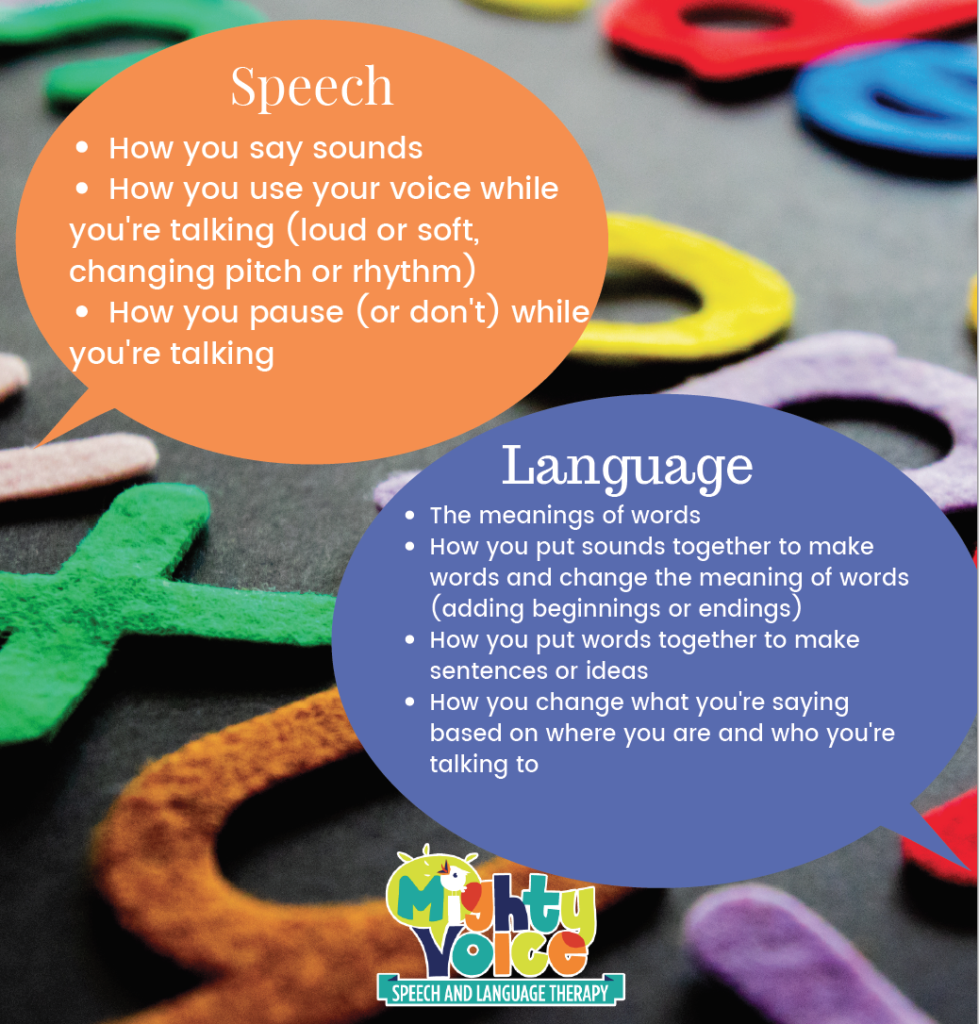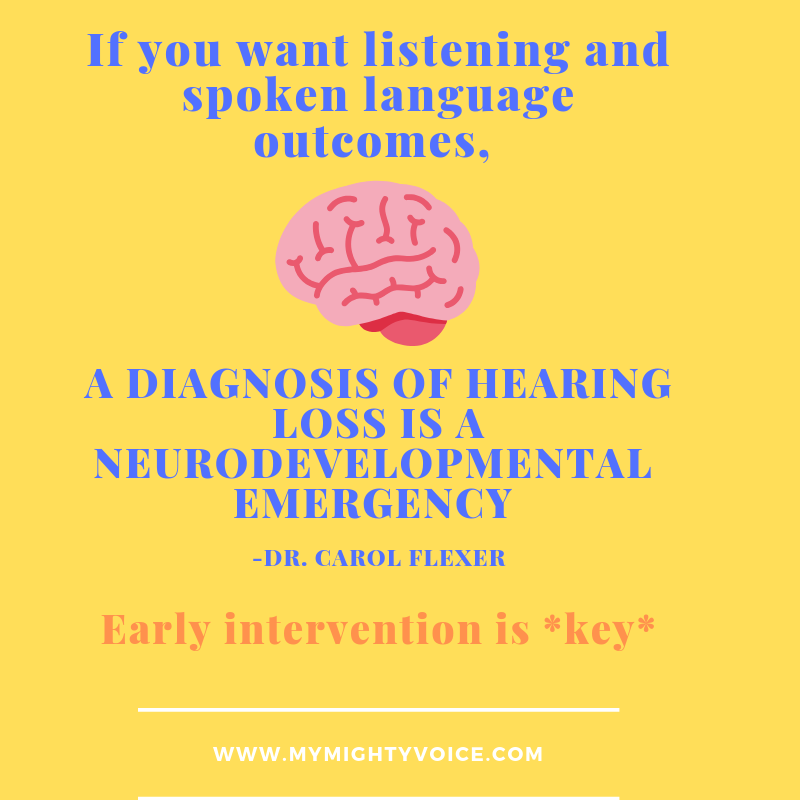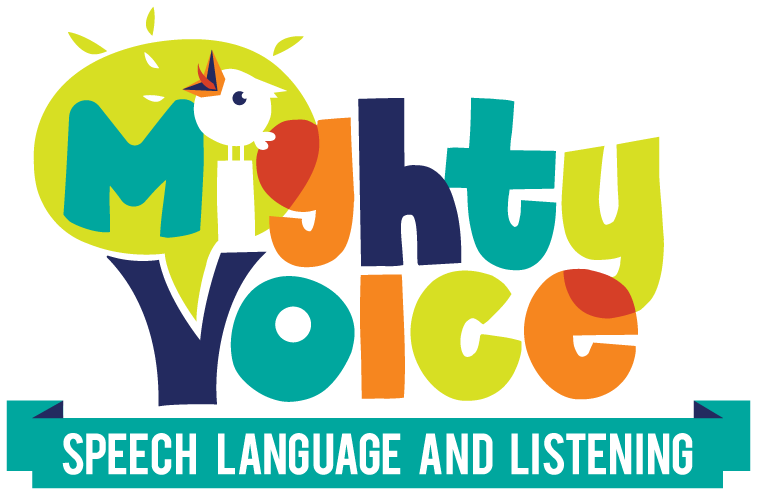Most of the time, we talk about speech and language together. It’s partly because they’re so closely connected and interrelated, but when you have a child with a hearing loss or a speech and language delay, you might start wondering about the difference. I remember that when I started my graduate program, I had the same question…aren’t speech and language the same thing?

They’re Different
No, not really, although they are intertwined. At the core, speech is how you say something, and language is what you say. Your speech is what you hear–how your tongue and lips and mouth make sounds, whether or not you have an accent, how your voice goes up and down, whether not you stutter…all of those things are speech.
Speech
Speech is also what we’re noticing when someone has difficulty producing a certain sound. If you’ve noticed someone having a lisp, or a child who can’t say their “R” sounds (ie wabbit instead of rabbit), you’ve noticed their speech. It’s how they’re saying their sounds that is catching your ear.
Language
Language is the “meat” of what you’re saying. It’s the words you’re choosing and what they mean, it’s how you’re putting those words together into sentences, and how you’re changing the beginnings or endings of those words to mean different things (like girl vs girls or preschool vs school).
Language is also what we’re doing when we say something differently to different people. You might tell your spouse or partner “I feel gross,” while you’d tell your boss “I’m not feeling very well today.” Or, you might tell a child “Mommy needs to go potty,” while you would tell another adult “I need to use the bathroom” or something similar.

Different but Connected
While speech and language are different things, there are certainly connections. For spoken English, you need to understand and be able to produce the sounds (speech) in order to create sentences (language). You also need to understand what the words mean, how you can change those meanings, etc.
Consider native American Sign Language speakers for a moment. When someone is using ASL, you may not hear any audible sound (speech). But, do they use language? Absolutely! Instead of an audible voice and sound (speech), they are using their hands and a manual system. There are still words, meanings, and sets of rules (grammar) about how to put those words together to make structure.
Why Should You Care That They’re Different?
I purposefully kept this post simple. There is a ton more we could talk about in terms of speech and language, but I want to make sure readers understand the difference because when you have a child who has hearing loss and needs therapy to help acquire language, it matters.
For children with typical hearing born into a hearing family, they are exposed to speech AND language from the day they’re born. Sure, they hear their parents’ voices and the sounds they’re making (speech), but they also are hearing words and sentences, and the tone of voice when a parent is happy or angry (all of this is language).

Children born into Deaf families that use American Sign Language (ASL) have this early exposure to language as well–their parents are not using speech, but they are signing words and meanings and sentences, and their children are watching it. They are acquiring language.
For children with hearing loss who are born into a hearing family (which is somewhere around 95% of all children with hearing loss), they do not have access to language immediately–they can’t hear their parents talking and pick up the sounds (speech) and words and meanings and structure (language) like their peers.

This is why understanding the difference between speech and language is critical–if you have a child with hearing loss, your first priority should be to give them access to language. How language is accessed will be different for different families–some will choose American Sign Language, some listening and spoken language and amplification, some a combination of both.
If you are wanting listening and spoken language outcomes, I would love to help. Read about the services Mighty Voice can offer for families looking for these outcomes.
Get the Printable
In order to help clarify some of the differences between speech and language, I’ve created a printable version of the difference between speech and language for my readers. Fill in the form below to sign up for my email list, and I’ll send you the printable once you’ve confirmed your address.
